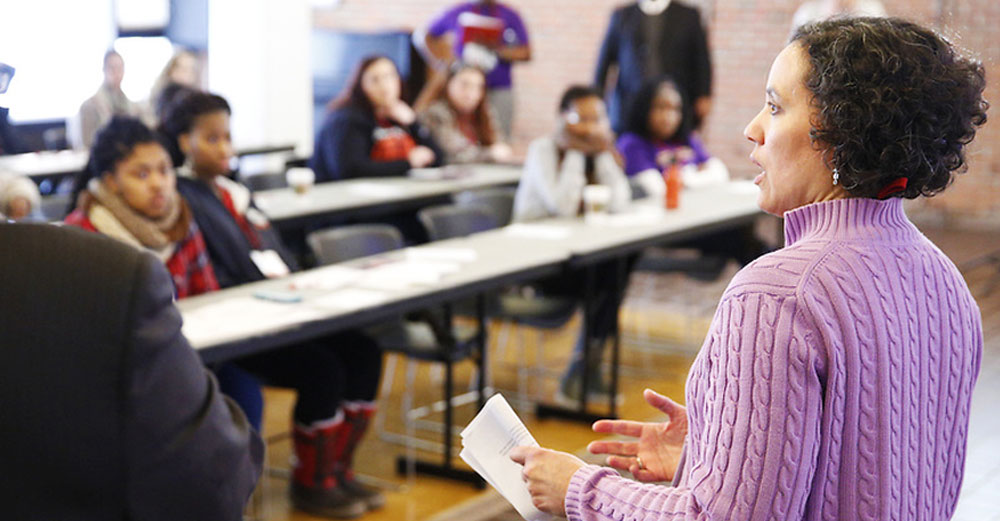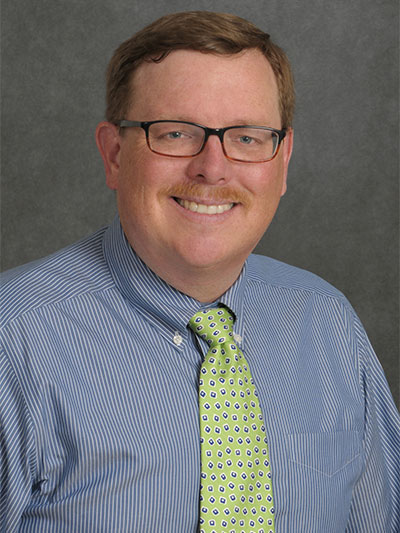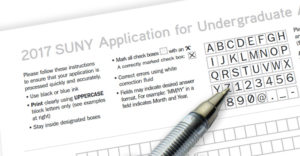
There’s been something important missing from education reform efforts.
Imagine there was to be a party in your honor. You’ve been working hard for many years, and your colleagues, friends, and supporters decided to celebrate your work. They’d pick a venue, agree on a date, arrange the menu, draw up a guest list, choose a band. They’d invite speakers to extol your virtues. They’d create a press kit, compose appealing releases and enticing photos. Then the big day arrives, the party is an enormous success. Everyone has a fantastic time, eating, drinking, and being merry for many hours, dancing, bonding, and making plans for the next big event. But . . . and this is big . . . no one thought to invite you. Even worse, no one seemed to notice. Or care.
Education reform is hardly a party, and no one’s singing “For He’s a Jolly Good Fellow.” But there have been many, many meetings, think tanks, conclaves, colloquia, and task forces regarding education, often federally funded. And yet, there seems to be an important voice missing from them: Teachers.
When education reform discussions are about teacher preparation, one might assume the voices of those who teach the teachers, teacher educators, would be included. Think again.
SUNY TeachNY Steering Committee Is Different
TeachNY is an attempt to “to create bold new teacher and leader preparation policy for decades to come” (TeachNY Overview) Supported by a NYSED grant from the federally funded Race to the Top, TeachNY was begun by Chancellor Nancy Zimpher with the support of then-Commissioner John King. The TeachNY Advisory Council announced their results last May in collaboration between Chancellor Zimpher and Commissioner MaryEllen Elia. This summer, Chancellor Zimpher and SUNY Provost Alex Cartwright convened a SUNY TeachNY Steering Committee “to broadly engage the SUNY community in our efforts to transform policy and practice around teacher preparation.”

Why is this steering committee different from other education reforms? This steering committee membership includes faculty and staff who are on the ground, educating and preparing teachers from their point of interest to their attainment of teacher certification. We know from the inside what the issues are and how they truly affect student success.
I served as Director of English Teacher Education at Stony Brook University from 2003 until June 1, 2016. My colleagues and I have prepared hundreds of new English teachers, and we have a very large network of alumni who are teaching in middle and high schools across the country. From formal surveys and from casual chats and emails, we have learned what has worked effectively in our program and what needed changing. We’ve made countless improvements, and we continue to strive to make our program better and better, more and more responsive to the needs of today’s teachers, today’s schools, and most importantly today’s students.
Teachers and teacher educators know we don’t have all the answers. But we have a lot of them, and we’re happy to share. Finally, the SUNY TeachNY Steering Committee is asking us. That’s why this reform is different.
Teachers voices will make a difference in TeachNY, as the SUNY Steering Committee “Develop[s] recommendations regarding revisions to existing policy and proposed language for a renewed, enabling policy framework and action agenda.”
Where We Go From Here
The SUNY TeachNY Steering Committee is meeting now to examine old policy documents and the new recommendations from the TeachNY Advisory Council. In the meantime, Chancellor Zimpher and Commissioner Elia are taking a “Listening Tour” of SUNY campuses and New York schools. Meetings of teacher education faculty, content faculty, administrators, and faculty and leaders from K-12 school districts will be invited to speak out on current issues of teacher education, and through facilitated forums, give their own ideas for strengthening teacher education moving forward.
NYSUT and UUP have found the TeachNY Advisory Council’s report wanting, suggesting it leaves out too many of the real problems in teacher preparation, and that only with the voices of teachers and teacher educators can those problems be identified and can solutions be found. This phase of TeachNY can address those flaws by bringing teacher educators’ experience and expertise to bear on this ambitious reform effort.
Members of the SUNY TeachNY Steering Committee are coming to a SUNY campus near you. This is an opportunity for teacher educators to ensure their voices are heard and that real solutions to serious issues can be developed. I urge my colleagues to get involved and make sure their concerns and ideas are heard. If TeachNY can help raise teachers’ and teacher educators’ voices, it truly has the potential to “lift up the teaching profession.”
This post was authored by Ken Lindblom, Ph.D. Ken is Interim Dean of the School of Professional Development, and Associate Professor of English and English Teacher Education at Stony Brook University. He is also a member of the TeachNY Steering Committee.



